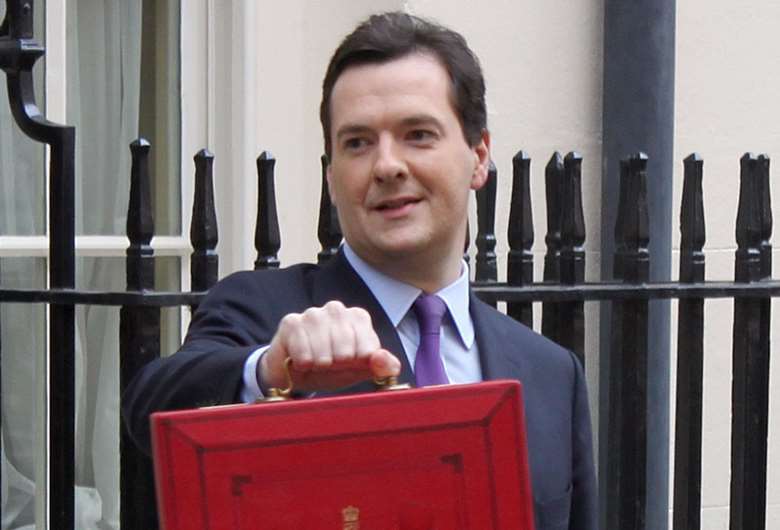Budget 2014: Welfare cap will 'trap poor in poverty', warn charities
Derren Hayes
Wednesday, March 19, 2014
Children's charities have hit out at the government's decision to introduce a cap on welfare spending from next year.

The cap, announced by Chancellor of the Exchequer George Osborne during his Budget speech on Wednesday, is to be set at £119bn in 2015/16, rising in line with inflation to £127bn in 2018/19.
The cap includes child benefit, incapacity benefit, winter fuel payment and income support – but does not include state pension and Jobseeker's Allowance.
Osborne said the government would put the plans before MPs shortly, but if approved the measures would ensure any future raising of the welfare bill above the inflation-linked cap would need to be approved by parliament.
But children’s charities said the cap failed to address the cause of social problems for those reliant on benefits.
Helen Donohoe, director of public policy at Action for Children, said: “Capping welfare spending without putting in the right support to enable families to reduce their reliance on benefits will keep poorer families where they are – trapped in poverty by the rising cost of living with little chance of escape.
“The politics of the welfare debate is taking away focus from what matters most, helping vulnerable children and their families.
“The thinking that a cap alone can make welfare spending sustainable is narrow-minded and short-term at best.”
Matthew Reed, chief executive of The Children’s Society, added: “Applying an arbitrary cap to welfare spending takes no account of changing circumstances of families caught up in poverty facing rising living costs beyond their control, including childcare and rocketing rents.
“The government is effectively transferring the risk of rising costs to children and families already struggling to make ends meet.”
Hilary Emery, chief executive of the National Children’s Bureau, said measures in the Budget could have a negative effect on disadvantaged children.
“Today’s Budget is not that of a government aspiring to make our country the best for children to grow up in.
“The government’s own analysis of its spending decisions shows that children living in the poorest households are disproportionately bearing the brunt of ongoing spending cuts and benefit changes.
"The Office for Budget Responsibility should publish an independent analysis of the impact of the 2014 Budget – in particular the extended welfare spending cap – on childhood poverty and inequality. We need to ensure that every child is able to fulfil their potential and that government spending decisions do not undermine this goal.”
Paul Soames, chief executive of charity Contact a Family, described as a "blow" the inclusion of payments for disabled children in the welfare spending cap.
“There is a real danger that any future government spending more than the capped figure will attempt to reduce disability payments even further to cut costs. The families we support need urgent reassurance that disability benefits will not be reduced or restricted if the overall cap on spending is reached," he said.
"While some benefit payments are exempt, the welfare spending cap will place increased pressure on families who have already been hit by a range of benefit cuts since 2010. MPs must vote against this cap to protect disabled children."
Alison Garnham, chief executive of Child Poverty Action Group, added: “The Chancellor published details today demonstrating that the poorest families are the worst affected by the government’s austerity measures. The Chancellor’s plan could be called the ‘Great Regression’ because it’s mainly the poorest who are hardest hit, while most in the wealthier half of the population are made better off by tax cuts. The Coalition is set to leave a legacy of higher child poverty rates and budgets that have made poor households poorer, and wealthy households richer.”
Other measures announced in the Budget include an extension of the apprenticeship grant to encourage employers to offer more vocational training opportunities, a raising of the income tax personal allowance to £10,500 from 2015/16, and additional help with meeting the cost of childcare for working parents.
Earlier in the week, the government announced it will extend the pupil premium into the early years.
But Denise Hatton, chief executive of YMCA England, said the Budget did little to help vulnerable young people.
“The Chancellor openly states that his Budget was one for the ‘makers, doers and savers’ of the country, but what about those not lucky enough to be in this position?
“We need to see a stronger commitment from government to address the needs of single young people if we are going to be in a position to nurture the next generation of ‘makers, doers and savers’ and secure the long-term economic recovery that the Chancellor is looking to achieve.”
Anne Longfield, chief executive of 4Children, said: “Further announcements on house building, cutting fuel bills and raising the income tax threshold to £10,500 will provide some relief to struggling families.
“Despite this, the Budget analysis shows that the poorest fifth will continue to be worse off under the tax and benefit support changes proposed. In the face of soaring living costs, benefit reductions and stagnant wages, the Chancellor’s statement did little to alleviate the concerns of the majority of families facing ongoing uncertainty over future finances."




